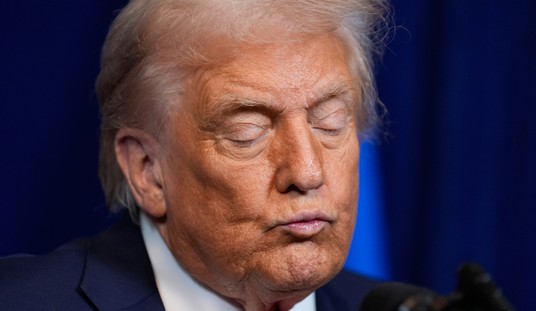President Donald Trump plans to announce a new direction on Iran today, one that addresses both the desire to revisit the previous administration’s nuclear deal and additionally seeks to place a greater focus on organizations and countries that support terrorism.
According to the White House, the highlights of the new plan involve tackling the threat of groups that support terrorism — with a particular emphasis on the Islamic Revolutionary Guard Corps (IRGC) — and shoring up alliances with regional players that share an interest in a “more stable balance of power in the region.” From an official White House release:
- The United States’ new Iran strategy focuses on neutralizing the Government of Iran’s destabilizing influence and constraining its aggression, particularly its support for terrorism and militants.
- We will revitalize our traditional alliances and regional partnerships as bulwarks against Iranian subversion and restore a more stable balance of power in the region.
- We will work to deny the Iranian regime – and especially the Islamic Revolutionary Guard Corps (IRGC) – funding for its malign activities, and oppose IRGC activities that extort the wealth of the Iranian people.
- We will counter threats to the United States and our allies from ballistic missiles and other asymmetric weapons.
- We will rally the international community to condemn the IRGC’s gross violations of human rights and its unjust detention of American citizens and other foreigners on specious charges.
- Most importantly, we will deny the Iranian regime all paths to a nuclear weapon.
However, in a briefing with reporters yesterday, Secretary of State Rex Tillerson indicated that, in addition to addressing support of terrorism by the Iranian regime, there is a second prong to the new approach that involves an attempt to amend the Iran Nuclear Agreement Review Act instead of former President Barack Obama’s Iran Nuclear Deal.
Acknowledging that many on the Hill have “strong feelings” about Obama’s nuclear deal, Tillerson said examining amending the INARA would provide Congress the opportunity to have a say in the new approach toward Iran. It would further avoid any appearance of walking away from the Iran deal if new sanctions are issued under an INARA amendment that effectively decertified Tehran’s compliance.
“Congress never really got to express a view…this is their opportunity to express a view,” Tillerson told reporters, insinuating this is something of a compromise from the Trump administration on Obama’s deal, which the Iranians remain technically in compliance with.
The benefits of exploring an amendment to the INARA as legislation that “lays aside” Obama’s Iran nuclear deal is that sanctions can be issued without sunset clauses if Congress so chooses. This is not possible under the current Iran deal without giving the impression that the U.S. is walking away from the deal.
Tillerson was firm in his assertion that the U.S. will never allow Iran to have nuclear weapons, and the belief is that amending the INARA legislation is one potential way of fulfilling that promise.
“The best platform is to attempt to fix this deal,” Tillerson said, pointing out that Obama’s Iran deal will not be affected by any amendment to the INARA. “We may not be able to fix it,” he added.
Answering a question from a reporter, who relayed a criticism that some believe that if the Trump administration walks away from the Iran deal other nations would never be able to trust the U.S. again, Tillerson said, “I think they can trust we’ll never do a deal this weak again.”














Join the conversation as a VIP Member